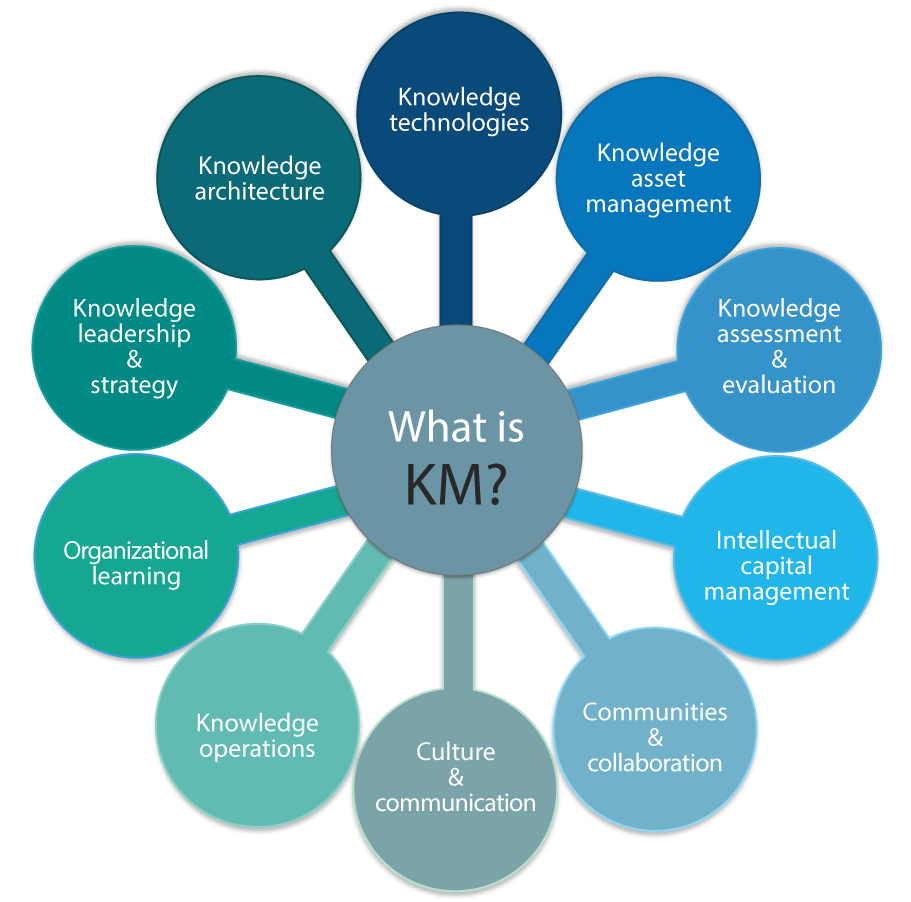Knowledge management deals with the process of creating value from the organisation’s intangible assets. It involves a process of capturing, storing and retrieving all the possible knowledge an organization has in a single data base, which in return, enables an organization to build connectivity internally as well as externally.
Internally, departments can gain mutual understanding, learn from each other and become interdisciplinary ‘hubs’ of knowledge and innovation through an effective knowledge management system. Knowledge links to external stakeholders also assist with mutual understanding, learning from each other and scanning the environment for innovation opportunities.
The ultimate goal of knowledge management is to create communities of practice and knowledge management forums within disciplines but also across disciplines. The concept of the Learning organization was introduced by Peter Senge in his revolutionary book: The fifth discipline in 1990. Senge said that organizations that will truly excel are those that discover how to tap people’s commitment, develop the capacity to lead at all levels – he termed this ‘team learning’ and ‘team thinking’.
